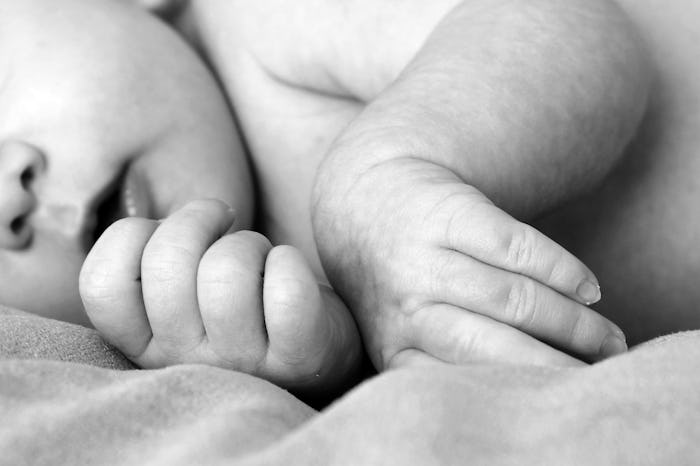An investigative team of three women working for ProPublica are trying to figure out why the U.S. maternal mortality rate is so high. More importantly, they're attempting to identify all of the victims as well. For those not tuned into the maternity game — and as it turns out, that seems to be most people — this is definitely big deal.
The maternal mortality rate in the United States might shock you — it's the highest in the developed world, taking the lives of an estimated 700 to 900 women in 2016 alone. It's "estimated" because maternal mortality is hard to pin down and obviously hospitals and doctors don't exactly advertise the deaths.
The ProPublica team, comprised of Nina Martin, Emma Cillekens and Alessandra Freitas, is attempting to identify all of the women who died last year as a result of giving birth, in an attempt to get a better picture of what maternal mortality really looks like in the developed world. So far, they have identified 120 of the women and their stories will probably shock you.
As tragic and sometimes chilling as their stories sometimes are, they need to be heard. Especially since Republicans are currently crafting a health care bill that would repeal the Affordable Care Act, roll back funding for Medicaid, and be generally bad for women, especially mothers. Many of the stories, if you read between the lines, reveal that underfunded hospital programs, lack of insurance, and the way the American health system generally deals with mental health issues might be at the root of the problem.
Take 39-year-old Emily Cook Dyches of Salem, Utah, who delivered her fifth child in 2015, she recovered physically from a problematic delivery, but not emotionally. Her panic attacks, namely out of worry for her youngest son, Trey, got increasingly worse. She tried antidepressants, but they still didn't help her through her postpartum depression. She voluntarily went to an inpatient facility for just under two weeks, but it was more like "incarceration," according to her husband and their insurance didn't cover outpatient therapy.
After having a panic attack in a car with her parents, her dad pulled over to try to calm her down. She opened the door and walked into traffic on the freeway.
Another woman, 42-year-old mother of seven, Marqwetta Johnson of Oklahoma found out she was pregnant with twins. She was diagnosed with an ectopic pregnancy, which means that one of her eggs implanted in her fallopian tube rather than her uterus. It burst and she went into cardiac arrest. She was older and overweight, according to ProPublica, which means that complications were more likely. But she didn't go to the doctor often because she was scared of the expense. Her eldest son Jamal said:
She did not go to the doctor very often. I think people have a fear of going to see the doctor because of the cost associated with it. The uncertainty and the fear of, "Well if there is something wrong, it’s gonna be more expensive for me to try to fix what’s wrong."
But it's not just lower income women, or women who suffer from depression, that die because they are pregnant or have children. Maternal mortality affects everyone. Kira Dixon Johnson had a scheduled C-sections at Cedars-Sinai Medical Center for her second child. She began to hemorrhage afterwards and died of obstetric bleeding, one of the leading causes of death for mothers, 12 hours later. Her family alleged that the hospital didn't catch her abdominal cavity filling up with blood.
In a statement to People back in May, Cedars-Sinai spokespersons wrote,
Cedars-Sinai is firmly committed to the highest levels of quality, has a comprehensive program to review any problems in patient care, and takes action any time it needs to make changes to maintain our high level of quality. Any time there are concerns raised about a patient’s medical care, we conduct an investigation to determine exactly what happened, including reviewing hospital procedures and the competency of healthcare providers, and make changes as needed to ensure that we continue to provide the highest quality medical care.
There are plenty of other stories like this compiled in the ProPublica report, which highlights the many issues with the American health care system and the dangers of getting pregnant. It makes Illinois House Rep. John Shimkus — who complained that men shouldn't have to pay for women's prenatal care or to visit a OB-GYN — sound not just tone deaf or politicized, but cruel as well.
Getting women to doctors to have their pregnancy monitored, ensuring that they're getting top notch care after birth, both for their physical and mental well-being, isn't something someone "has" to pay for. It saves lives, and prevents families from losing their mothers.
The investigators for ProPublica, who have partnered with NPR, have asked anyone who has lost someone to maternal death this year and is comfortable talking about it to contact them and tell them your story.
